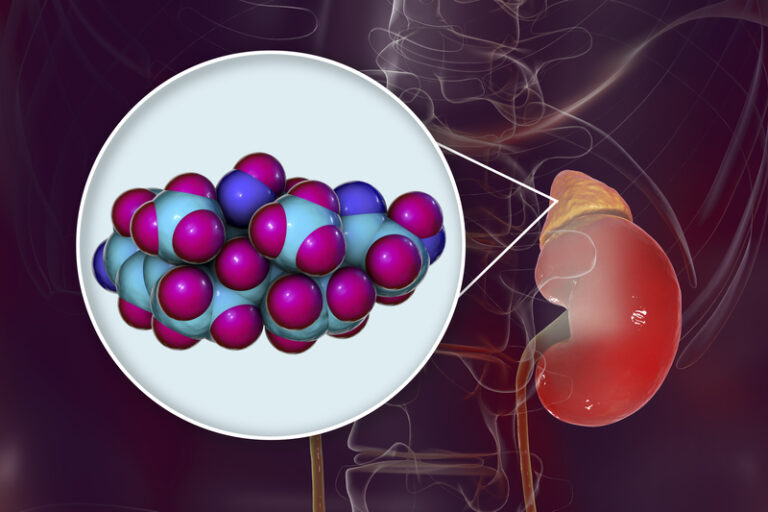In part one of the subject of weight gain, we talked about the role of the thyroid relative to weight gain. Now we will talk about the role of the adrenals. There are many reasons for weight gain, but we are only covering these two. At a later date, we will have a longer discussion on this topic.
The adrenals are tiny glands that sit on top of the kidneys and are the hormonal control mechanism for the renal system. The adrenals produce many hormones: the ones most affecting weight are cortisol and estrogen. Cortisol is a hormone with several functions: it can help regulate metabolism, control blood sugar levels, reduce inflammation, direct circadian (sleep) rhythm, assist with memory formulation and has a controlling effect on blood pressure. It has a fairly direct role in telling the body to store more fat.
Elevated cortisol has a negative effect on the functions stated above. There are three reasons cortisol can go up: eating sugar, stress and inflammation. When those things are remedied, cortisol levels normalize, and everyone is happy. Chronically elevated cortisol interferes with normal stress response, can be responsible for anxiety and depression, causes weight gain and also contributes to hormonal imbalance. These include brain, sex and inflammatory hormones. Both high and low cortisol can have a detrimental effect on thyroid function, can contribute to blood sugar highs and lows, interfere with healthy sleep and cause weight gain. When the adrenals are involved, that weight gain occurs around the middle and tends to be puffy weight.
The adrenals also produce a hormone called DHEA. DHEA gives us sustained energy throughout the day, counteracts depression, improves bone mineral density, enhances well-being, heightens cognitive function, wards off chronic illness, improves physical performance and speeds healing. Pretty important hormone, especially if you want to feel good enough to exercise and make healthy choices. DHEA also backs up cortisol and is our “stress reserve tank”.
Imbalance in adrenal health or adrenal hormones can contribute greatly to gaining weight. Reliance on the hypothalamus and pituitary is critical. Also, the thyroid and adrenals work hand in hand in helping maintain normal weight.
Taking care of the adrenals is of utmost importance. Many factors can disrupt the tenuous feedback loop between the adrenals and the other supportive glands. Stress and trauma is huge. But also, coffee, alcohol, sugar, sleep deprivation, inadequate whole food nutrition and toxins all play a role in adrenal health, and therefore weight normalization.
Symptoms of adrenal stress or dysregulation include: Fatigue, poor stress response, cravings for sweet or salty food, needing caffeine and other stimulants to get going, anxiety, insomnia, brain fog, decreased libido and/or depression. If you are experiencing adrenal-related symptoms, let us help.
©2020 Holly A. Carling, O.M.D., L.Ac., Ph.D.







